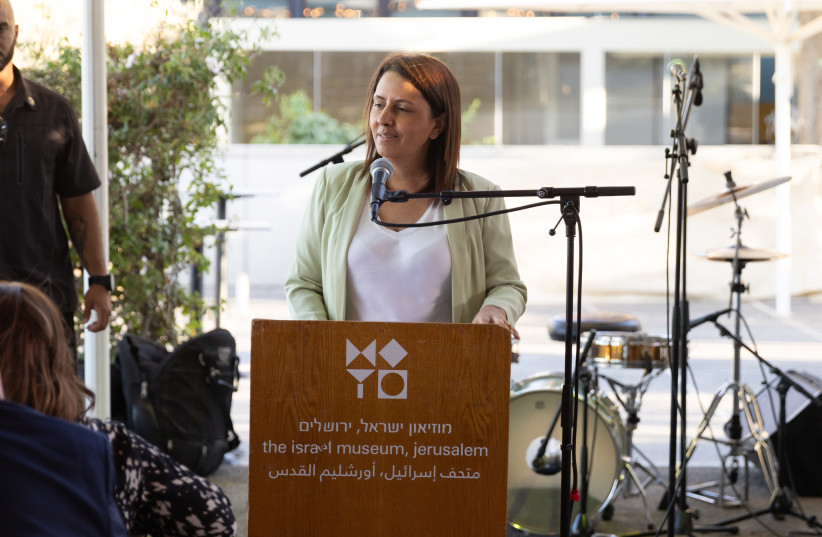Israel's government shut down the former public diplomacy ministry on Sunday and redirected its NIS 23.8 million to help rehabilitate residents of the South, raising the question of how much more money the government could save by closing redundant ministries.
Before it closed, the public diplomacy ministry was one of 33 government ministries set up at the beginning of the year when the government was formed. Its former minister Galit Distal-Atbaryan resigned more than a week before the ministry was shut down, saying that she felt her ministry was redundant and that the funds could be of more use in the South.
So how many more of the remaining 32 ministries could potentially be shut down or integrated into others and how much money could this free up?
Out of 32 current ministries, 25 could be said to be standard ministries that are essential to running the country as a Jewish and democratic nation:
- Defense Ministry
- Foreign Ministry
- National Security Ministry
- Justice Ministry
- Finance Ministry
- Economy Ministry
- Interior Ministry
- Health Ministry
- Welfare and Social Affairs Ministry
- Social Equality Ministry
- Education Ministry
- Energy Ministry
- Environmental Protection Ministry
- Labor Ministry
- Construction and Housing Ministry
- Agriculture and Rural Development Ministry
- Innovation, Science, and Technology Ministry
- Aliyah and Integration Ministry
- Diaspora Affairs Ministry
- Transportation Ministry
- Tourism Ministry
- Communications Ministry
- Culture and Sports Ministry
- Religious Services Ministry
- Jerusalem Affairs and Jewish Tradition Ministry

But while all these ministries are necessary for Israel's, some of their responsibilities overlap like the Foreign Ministry, Religious Services Ministry, and Diaspora Ministry all claiming to be responsible for Israel's relationship with the Jewish Diaspora. Considering there is a whole ministry dedicated to this issue, the other two could save time and money by focusing their resources elsewhere.
Furthermore, The Defense, Justice, and Education Ministries all have extra ministers within them with every extra minister costing millions of shekels.
What makes a ministry a higher priority?
As for the remaining seven ministries, a comparison of their responsibilities prove they are either redundant or they would be more efficient as divisions within other ministries.
The first such ministry is the National Missions Ministry which is responsible for pre-army service programs, National Service, communal and local missions, and the Settlement Division. The first two were previously the responsibility of the Education Ministry and could continue to be so while the communal and local missions would fall under the purview of the Interior Ministry as the entity responsible for local authorities. Meanwhile, the Settlement Division is an independent organization within the World Zionist Organization and doesn't require its own ministry to oversee it.
The ministry was opened in 2020 but didn't exist during the last government's year-and-a-half in power. It is led by Minister Orit Struk and closing it could free up NIS 134 million for this and next year.
Next up is the Strategic Affairs Ministry which was opened in 2006 to placate Yisrael Beytenu Chairman Avigdor Liberman who demanded to be public security minister in order to join then-prime minister Ehud Olmert's government. When it opened, the ministry mainly focused on the Iranian nuclear threat, and today it is also responsible for the Abraham Accords, pursuing peace, and maintaining a strong relationship with the US, and it's led by Ron Dermer.
Since 2006, the ministry has undergone multiple changes including being shut down or integrated with other ministries and changes to responsibilities. If the government were to shut it down now, the Iranian threat could become the responsibility of the Defense Ministry which is entrusted with Israel's security, and the rest would be handled by the Foreign Ministry. This would save Israel NIS 48 million until 2025.
Similarly to the Strategic Affairs Ministry, the Regional Cooperation Ministry could be just as effective as a division within the Foreign Ministry. The ministry, which is led by Dudi Amsalem, is responsible for Israeli cooperation with other nations in the Middle East and the Mediterranean and is costing the government NIS 43 million for this and next year.

The next ministry that could be closed is the Development of the Negev and Galilee and National Resilience Ministry which speaks for itself in overseeing the development of Israel's northern and southern regions. It's also in charge of caring for senior citizens and youth.
Due to their being no relation between the two main responsibilities of this ministry, it could be split in two, with the Negev and Galilee development becoming a division in the Interior Ministry while the senior citizens and youth are already the responsibility of the Social Equality Ministry, thus making it redundant for anyone else to oversee it.
The Development of the Negev and Galilee and National Resilience Ministry is led by Yitzhak Wasserlauf and is costing the government a whopping two billion shekels for 2023 and 2024.
Another ministry whose responsibilities overlap with those of the Social Equality Ministry is the Women's Advancement Ministry. It was established for the first time ever during this government, which was heavily criticized for only having eight women in the coalition out of 64 members. The ministry is led by May Golan and it supposedly took the women-related responsibilities from the Social Equality Ministry, but the latter still claims to be responsible for women's status and equality.
It's unclear exactly what budget the Women's Advancement Ministry has been given, but re-integrating it into the Social Equality Ministry could still save the country millions.
The next ministry is the Intelligence Ministry under the leadership of Gila Gamliel. While the ministry is supposedly responsible for managing the nation's intelligence, none of Israel's intelligence organizations answer to the ministry as the Mossad and Shin Bet answer directly to the prime minister, and the Intelligence Directorate is part of the IDF which answers to the Defense Ministry.
This raises the question of what work is being done by the Intelligence Ministry which isn't being done by Israel's three main intelligence entities. Meanwhile, its existence is costing Israel NIS 25.6 million a year.
Finally, there's Minister Amichai Eliyahu's Heritage Ministry which was broken off from what used to be the Jerusalem and Heritage Ministry and is now the Jerusalem and Jewish Tradition Ministry. The two ministries still have quite some overlap while the extra ministry is costing Israel NIS 74 million a year.
If Israel were to shut down the redundant ministries or integrate them into other ministries, it could free up well over NIS 2.5 billion, and with Israel at war and extreme rehabilitation needed down South, every shekel could be essential.
